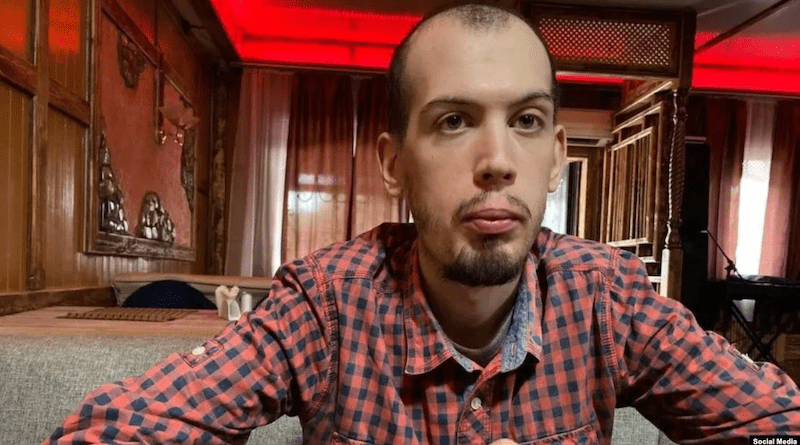Abduction Of Russian Dissident From Kyrgyzstan Is Another Sign Of Growing Authoritarianism – OpEd
Kyrgyzstan has had the reputation of Central Asia’s most democratic country for decades. However, since Sadyr Japarov became the nation’s president after the 2020 revolution, Kyrgyzstan has been getting closer to Russia – not just economically and geopolitically, but also in how it handles internal matters.
With Kyrgyzstan’s new government amending the constitution to strengthen the president’s power, arresting activists en masse and blocking independent media outlets, many experts claim Japarov is copying the authoritarian leadership style of Vladimir Putin.
Curiously, this did not prevent Kyrgyzstan from becoming a popular destination for Russian immigrants including opposition activists and anti-war protesters. After Russia invaded Ukraine in February 2022, hundreds of thousands of Russians left their country, fearing persecution and mass mobilization. Most of them chose to move to the ex-USSR states of Central Asia and the South Caucasus because of geographic proximity, lax immigration laws and relatively low prices.
According to The Bell, at least 34 thousand Russian citizens moved to Kyrgyzstan in 2022. Many of them felt they had found a safe haven where they could express their dissent against the Russian government without fear of being arrested. Shortly afterwards, they realized they were wrong. In January 2023, Kyrgyz police forced a group of Russian protesters to leave the square where they wanted to hold an anti-war rally. Three months later, a Russian immigrant community center was shut down after threats from the Kyrgyz State Committee for National Security.
The most worrying development is more recent. In October 2023, just a few days after Vladimir Putin paid a visit to Kyrgyzstan, Russian left-wing activist Lev Skoryakin “vanished” from his Bishkek apartment. Skoryakin was wanted by the Russian authorities for participating in a rally against the Federal Security Service organized by the civil movement Left Block.
Skoryakin’s friends told journalists he was abducted by a group of ten men in plain clothes who claimed they were police officers. Human rights activists suspected they were Russian security agents who engaged in informal cooperation with their Kyrgyz counterparts to take him to Russia. This could not be legal – Kyrgyz authorities had just refused to extradite Skoryakin because he had applied for political asylum.
Indeed, two weeks later, Skoryakin was found in a Moscow prison. Reportedly, prison officers tortured him trying to force him to publicly “confess” that he returned to Russia voluntarily.
If true, this is remarkably similar to the strategy Tajik President Emomali Rahmon has employed for over a decade. Just like Skoryakin, Tajik opposition activists Savriddin Juraev, Abdulvosi Latipov and Sharofiddin Gadoev were abducted and illegally taken abroad in what seemed to be cases of informal cooperation between the security agencies of two ex-Soviet countries. The only difference was the direction – these three activists were forcibly taken from Russia to Central Asia, not vice versa. After they arrived in Tajikistan’s capital Dushanbe, Tajik authorities made them record videos explaining they decided to come back to their country “by their own will”.
Skoryakin’s case was not the first international abduction from Kyrgyzstan. In June 2021, Turkish-Kyrgyz educator Orhan Inandi was abducted from his Bishkek home by Turkish agents. He was later sentenced to 21 years in Turkish prison on a terrorism charge. Inandi has been called one of the most influential leaders of the Gülen movement. Turkey blames Gülen members for an attempted coup in 2016.
What makes Skoryakin’s abduction different from Inandi’s is that the Russian abductee is a relatively low-profile activist who was wanted for a fairly small-scale rally that happened two years ago and attracted little media attention. The willingness of Kyrgyz authorities to break their own country’s law just to help Russia capture a lesser-known political emigre speaks of worryingly close informal cooperation between Bishkek and Moscow.
Skoryakin’s case should serve as a warning to all those living in Kyrgyzstan and wanted by Russia. Sadly, Kyrgyzstan may no longer be the safest place for a political refugee in Central Asia – at least as long as Japarov is in power.

